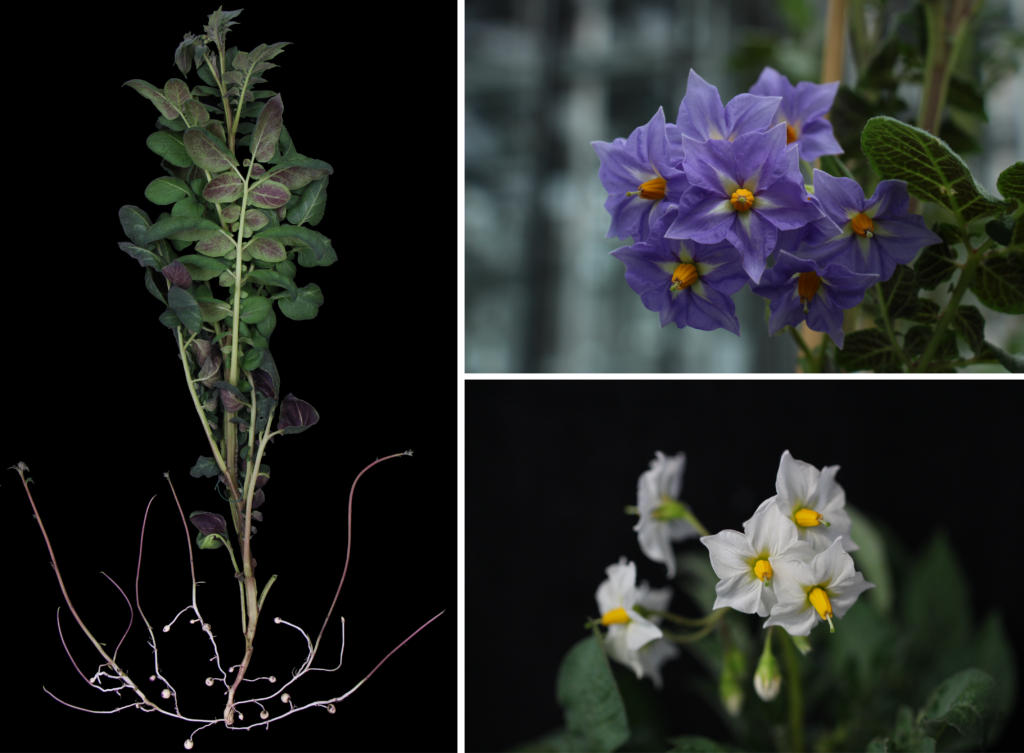Molecular physiology and development
The group aims to understand at the molecular and physiological level the mechanisms regulating model and crop plant growth and development in response to environmental cues.
We make use of complementary skills and approaches to dissect the underlying processes that influence traits associated with adaptation to a changing environment. A key objective is to define the molecular components allowing us to identify potential candidates for crop improvement.
Group leads: Vanessa Wahl and Rob Hancock.

Our research focus includes:
- Environmental control of meristem activity – dynamics of meristematic differentiation in response to environmental cues that influence plant morphology and development.
- Nutritional regulation of developmental transitions and growth – plant perception and integration of C/N status into flowering and tuberisation pathways.
- Impact of the abiotic environment on resource capture and utilisation – reguation of photosynthesis and sink/source relationships.
- Functional genomics for crop productivity – exploiting genetic diversity and phenomics.
Translational research
Our research is supported by a wide range of industrial stakeholders and closely aligns with translation in the APGC. Current programs focus on:
- Breeding and genetics for improved medicinal cannabis.
- Light use efficiency in indoor agriculture.
- Imaging for early detection of biotic and abiotic stress in potato.
- Precision breeding technologies.
Group members: Raul Huertas, Akis Varypatakis, Ray Campbell, Benjamin Potts, Ola Okpo
More information:
Vanessa Wahl
Research Group Leader “Developmental Transitions”
Based in Dundee
Robert Hancock
Plant Biochemist
Based in Dundee
T: +44(0)1382 568779
Robert Hancock is a senior biochemist and plant physiologist with 25 years post-qualification experience. His primary interests are concerned with the biochemical determinants and impact of biotic and abiotic stress on crop quality and how crop management and management systems can influence yield and quality. He works in soft fruits, potatoes and cereals where he has extensive industry links across the production and retail chain. His laboratory uses a range of physiological, biochemical, analytical and molecular techniques to understand the impact of stress on crop quality at a systems level. This research is supported by links with bioinformaticians working within Biomathematics and Statistics Scotland (BioSS), co-located at the James Hutton Institute. Fundamental work is complemented by more applied aspects of research which are facilitated through close interactions with colleagues working in the area of molecular breeding as well as extensive interactions and joint research projects with industrial partners.
You can also stay connected with our science by following us on social media, by following us, you’ll get real-time updates on our projects, events, and collaborations. Follow us on Bluesky, X, LinkedIn and Facebook now.
